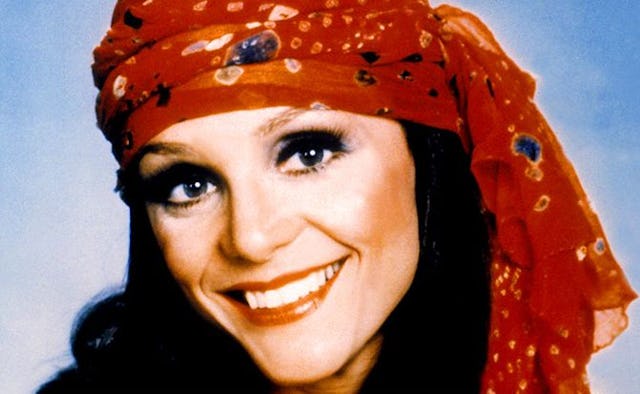Why We Will Always Love 'Rhoda'

Valerie Harper, star of classic sitcoms Rhoda and The Mary Tyler Moore Show, was rushed to the hospital this week during a performance of a musical she was performing in Maine. Harper was diagnosed with lung cancer in 2009 and announced in 2013 that she had terminal brain cancer.
News of Harper’s health emergency got us thinking about just why she has been an inspiration to generations of women, her name synonymous with funny women and feminism. “She was my first understanding that women could be funny,” said Leigh. “I grew up looking to her as a mother figure,” Allison said. “She and Mary Tyler Moore were pioneers for working women.”
Harper was a stage star in the ’60s and appeared on TV in her own show, Valerie, in the 1980s, as well as more recently on Dancing With the Stars. But the character with which we’ll always associate her is, of course, Rhoda Morgenstern, who first appeared as Mary’s zany Minneapolis neighbor on The Mary Tyler Moore Show in 1970, then moved to New York City and had her own groundbreaking CBS sitcom, Rhoda, which ran from 1974 to 1978.
Rhoda was smart, hilarious, a fashion plate who “had a bad puberty” that “lasted 17 years,” an independent woman who lived with her sister in New York City, got married and divorced and started her own business—the perfect poster girl for the Women’s Movement. For all these reasons, we’ll always adore, admire and be grateful to Rhoda—and to Valerie Harper—for giving us an ideal and enduring role model for how to live our lives hilariously, fearlessly and without apology.
1. She moved from Minneapolis to New York City on her own.
And moved in with her hilarious younger sister, Brenda, played by Julie Kavner.
2. She had an awesome mom with whom she had a realistically challenging relationship.
Ida Morgenstern was played by Nancy Walker from the Bounty paper towel commercials. She tough-loved Rhoda into moving out of her parents’ house and into her own place.
3. She took the New York City subway to her own wedding.
Phyllis (Cloris Leachman) forgot to pick her up, of course.
4. She had her own window-dressing company.
4. She tried to imitate Mary Tyler Moore’s trademark hat toss in the credits, but couldn’t catch any air.
5. She had a complicated relationship with her weight, like so many women.
On The Mary Tyler Moore Show she goes to the Weight Watchers-ish Calorie Cutters, or what Rhoda calls “Fatties Anonymous.” The opening scene of this episode, wherein she tells Mary she’s lost 20 pounds and Mary tells her to look in the mirror and “forget your Rhoda who does a lot of put-downs about herself,” could be one of a million conversations between girlfriends, from any decade.
6. She got divorced, unapologetically, in an era when this was uncommon.
And did a lot of dating, without the aid of the Internet.
7. Those headscarves!
Who could forget Rhoda’s trademark scarves? Her groovy fashion was just one more inspiring part of her trendsetting persona that we’ll always adore—and try our best to emulate.
This article was originally published on